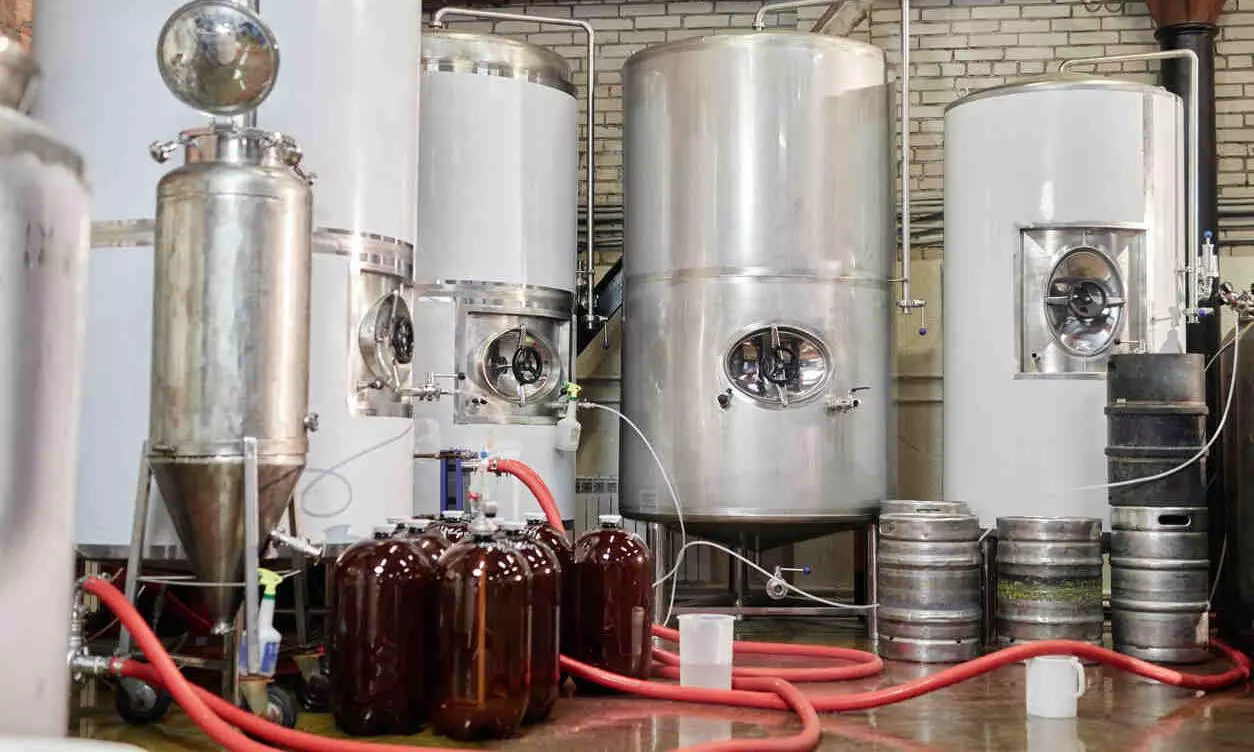
Palakkad brewery row | Pinarayi govt facing the heat from Congress, BJP
State govt nod for Rs 600-cr project raises eyebrows due to firm's alleged links to Delhi liquor policy case; villager up in arms as region faces water scarcity

In the wake of the Oasis Brewery controversy that has gripped Palakkad, political tensions have escalated between the ruling Left Democratic Front (LDF) and the opposition Congress-led UDF as well as the BJP in Kerala.
The issue centres around the Kerala government’s decision to grant a licence to the Madhya Pradesh-based Oasis Commercial Private Ltd to set up a brewery and distillation unit in Elappully, Palakkad district, a region already struggling with water scarcity.
This has sparked protests and accusations of corruption, leading to a complex political landscape.
The situation has led to an unusual alliance between Congress and BJP members at the local level, as they jointly oppose what they see as an ill-conceived project that threatens their community’s resources.
Also read: Workers cry foul as Kerala's Punalur Paper Mill seeks to reboot as brewery
Accusation of corruption
On January 18, the government approved a Rs 600 crore project for a brewery and distillation unit at Elappully in Palakkad. The approval raised eyebrows due to the company’s controversial history, including its director’s involvement in the Delhi liquor policy case.
Senior Congress leader Ramesh Chennithala accused Chief Minister Pinarayi Vijayan’s administration of favouritism.
“The licence given to Oasis must be cancelled immediately. It’s ironical that a government which expressed inability to provide water to a public sector distillery is now offering water sully to a private player,” he said.
Congress vs government
The opposition’s concerns were echoed by Leader of Opposition in the Assembly, VD Satheesan, who pointed out that the company had previously misled local authorities about its intentions when it bought land under the pretext of starting an educational institution.
“Did any distillery operating in Kerala know about the government’s decision to change the liquor policy and allow liquor manufacturing?”
Also read: Kerala facing liquidity stress due to fall in Union fiscal transfers: Guv in policy address
Excise minister MB Rajesh defended the government, asserting that all regulations had been followed.
“The company has been asked to follow all regulations and guidelines. The government won’t allow exploitation of drinking water at Elappully. The opposition took up the issue initially alleging corruption but now they have backtracked on that. There is no substance in any of it. They will backtrack from the water scarcity allegation also,” he added.
CPI(M) defends project
The Communist Party of India (Marxist) points out that the project would benefit Kerala financially by reducing reliance on imported spirits.
“Every year, 10 crore litres of spirit are brought into Kerala. Transporting this incurs a cost of Rs 100 crore. This can be saved. Additionally, there’s the GST revenue. There’s a regulation that only broken rice can be used to produce spirit. This initiative will provide direct employment to 680 people and ancillary employment to over 2,000 individuals,” read the January 23 editorial of the Deshabhimani newspaper, the mouthpiece of the CPI(M).
Also read: Telangana liquor stalemate puts domestic industry on the rocks
“Currently, the state has eight distilleries, 10 blending units and two breweries. Some of these were approved during the UDF regime. Why was there no opposition back then, and why is it surfacing now? There’s also an argument that this controversy is being fuelled for the benefit of the spirit lobby in Congress-ruled states,” it added.
Panchayat objects
However, there are reports that the local water authorities have expressed their inability to supply water for industrial purposes due to existing shortages. This raises questions about the feasibility of such a project in a water-scarce region.
The Elappully panchayat, ruled by the Congress-led United Democratic Front (UDF), has officially opposed the brewery project, passing a resolution urging the state government to reconsider its decision.
“Considering the geography, climate and agricultural practices in our panchayat, we have taken a strong stand against the brewery. Elappully is an agricultural region bordering Tamil Nadu. Being a dry area, paddy cultivation is nearly impossible and only other grains and vegetables can be grown here,” said panchayat president Revathi Babu of the Congress.
Also read: How Northeast India’s craft spirits are blending a cocktail of taste and high
Row over water
“The lack of water has forced people to abandon around 26 acres of land, leaving it uncultivated,” she said. “The panchayat has been struggling with drinking water issues for years. When the water authority said it wouldn’t supply water to the company, it has become evident that the excise minister had misled the public.”
On the other hand, CPI(M) state secretary MV Govindan dismissed fears over water scarcity as politically motivated. He suggested that rainwater harvesting could meet the brewery’s water needs and questioned whether opposition protests were backed by competing interests in the alcohol industry.
“These allegations have a political motive. Those raising corruption claims might have the support of the spirit lobby. The water required for the unit can be sourced locally in Palakkad through rainwater harvesting,” he said, adding that a rainwater harvesting facility will be built on a five-acre plot.
Watch | Federal row | Why did states fight for the right to regulate industrial alcohol?
Protests gain momentum
But protests against the brewery have gained momentum, uniting various political factions against the LDF government. Both the Congress and BJP leaders have rallied outside Assembly sessions, demanding accountability from the state administration.
BJP leader C Krishnakumar emphasised that “this distillery decision will be a major blow for irrigation and drinking water schemes”.
It is evident that this issue will not only influence local politics but may also set precedents for future industrial projects in environmentally-sensitive areas.

